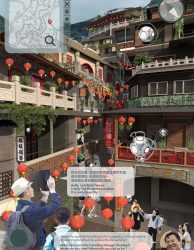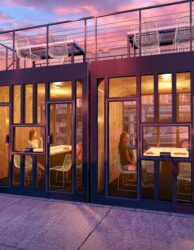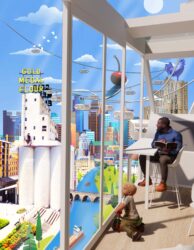
Under the Skin: New affection alternatives for pandemic cities
Team
Name: Bruna + Bertuccelli Fagá de Moraes
Nationality: Brazilian
Institution: University of São Paulo
Name: Gabriel + Cordeiro Gaspar dos Santos
Nationality: Brazilian
Institution: Federal University of Rio de Janeiro
Name: Gabriela + Oliveira Wedekin
Nationality: Brazilian
Institution: State University of Londrina
Name: Lara + Norões Albuquerque
Nationality: Brazilian
Institution: Federal University of Santa Catarina
Name: Sophia + Guarany Cabral
Nationality: Brazilian
Institution: Florida International University
-EDITORIAL PICK of HEALING Competition
During the pandemic, we practice social distancing as an act of protection. For Brazilians, touch is a fundamental part of showing affection among people. Our culture has developed a body language that is capable of communicating experiences for which words are insufficient. Like Paul Valéry, we believe that the deepest part of man is the skin. The skin is the surface that places us in the world. It is our communication and sensitivity system. We find in the antiviral fabric a possibility to expand on it and to be able to touch the world again. The fabric, which can be light as the wind and malleable as the body, is sustainable, as well as easily manufactured, transported and installed. We appropriated fabrics and dynamic structures as alternatives for the buildings of a volatile future. The connection with sensors increases the possibilities of transformation. The fabrics’ structuring as a malleable and safe surface for touching occurs through steel cables connected on pulleys. The pulleys work the traction and compression of the steel cables, raising or lowering the fabric. We will need a second skin to maintain our affection in cities harmed by the pandemic, thus the installation materializes our collective skin.
#alternative technologies #collective skin #antiviral fabric #touch #affection







